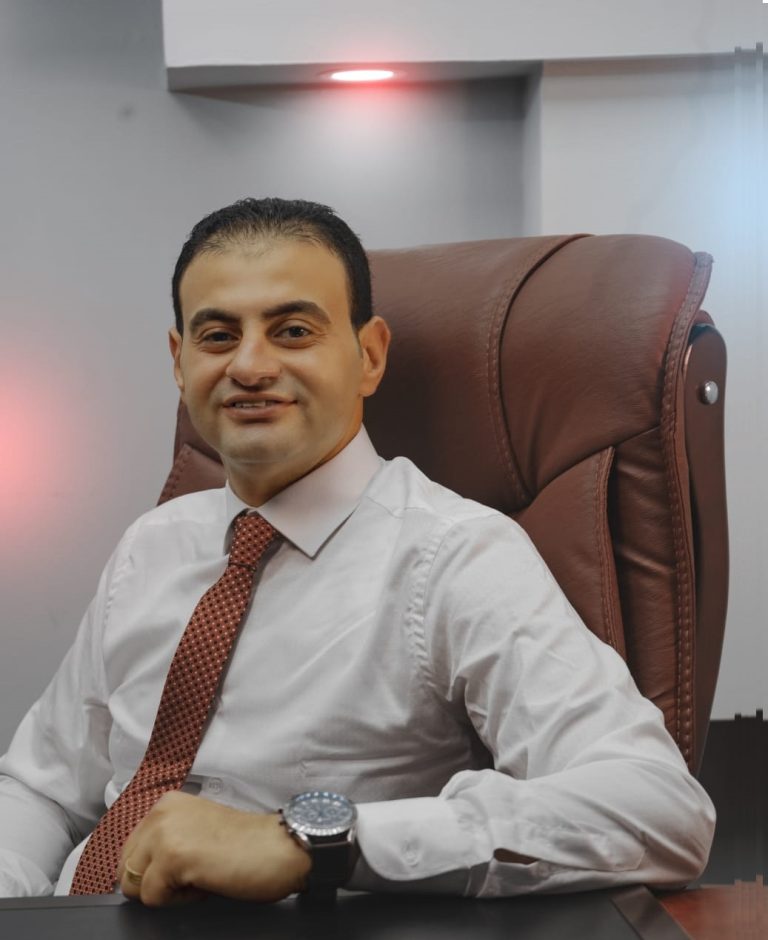Cairo – Egyptian company Queen Land aims to export monoammonium phosphate and triple superphosphate fertilizers to the Brazilian market, as Brazil is one of the world’s biggest agricultural countries and imports large amounts of various fertilizers.

Queen Land Chairman Bishoy Anwar (pictured above) said the company started its activities by manufacturing agricultural fertilizers, and in 2017 it set up a new production line of monoammonium phosphates and triple superphosphates with a total investment of approximately EGP 150 million (USD 4.8 million). The company manufactures fertilizers, chemicals, and agricultural pesticides.
He told ANBA that Queen Land managed to celebrate a series of phosphate-related contracts and cooperation protocols with major agencies and institutions in Egypt. He added that there has been a cooperation with the Egyptian Company for Agriculture and Rural Development which is affiliated to the Agricultural Bank of Egypt to supply phosphate and that the product is also distributed to all the agricultural and agrarian reform cooperatives and associations in Upper Egypt.
The executive explained that Queen Land aims to invest EGP 200-500 million (USD 6.4-8 million) in raising its production capacity from 5,000 tons per month to 15,000 tons per month. According to Anwar, the new investments will go to obtaining a 23,000-sqm area next to the plant in the Al-Kawthar Industrial Zone in Sohag.
Anwar says the new plant will be dedicated to manufacturing calcium nitrate and the company also works on monophosphate granulation and granulated NPK projects. The current factory is built across an area of only 2,100 sqm, with a production capacity that limits its expansion to international markets. But Queen Land has submitted a request to the Industrial Development Authority to annex the new area.
On the attractiveness of Egypt’s fertilizer industry for domestic and foreign investors, he stressed that expanding the agricultural area of the Arab country always require a increase in fertilizer production and consequently bigger investment opportunities in the industry.
Anwar stressed that the government is very interested in expanding agricultural projects in Egypt, mentioning projects in this sense like the Toshka Al-Khair project of agriculture and land reclamation, the New Delta, greenhouse production, and other local efforts to boost revenues from agricultural exports. The quality of Egyptian fertilizers attracts many foreign investors, especially now that they are emerging as an alternative to Russian and Ukrainian fertilizers.
Queen Land, an exporter
Queen Land aims to expand its exports to the African market, which is a natural extension of Egypt, Anwar says. As many countries across the country further develop their agriculture, the African market becomes promising and opportunity-rich in the fertilizer industry, according to the chairman of the company.

He added that Queen Land signed a series of contracts with importers from Sudan and Libya, but the political and security conditions in those countries have prevented the deal to be implemented. In addition, a delegation from Tanzania will visit the company’s plant in the coming months.
As for Latin America and its growing demand for fertilizers, especially after the Russian-Ukrainian war started, he explained that crises always come hand in hand with investment opportunities. That’s what has happened in the war so far: it has brought Egyptian companies many opportunities in fertilizers once the investors started seeking alternatives to Russia and Ukraine and found high-quality fertilizers from Egypt.
He stressed that Brazil is one of the primary focuses of his company for the coming period, particularly because the Latin American country imports large amounts of superphosphate and monophosphate, which are the core of the company’s work. He said that he’ll count on the support of the Arab-Brazilian Chamber of Commerce (ABCC) in seeking partners or distributors in Brazil.
Translated by Georgette Merkhan & Guilherme Miranda




